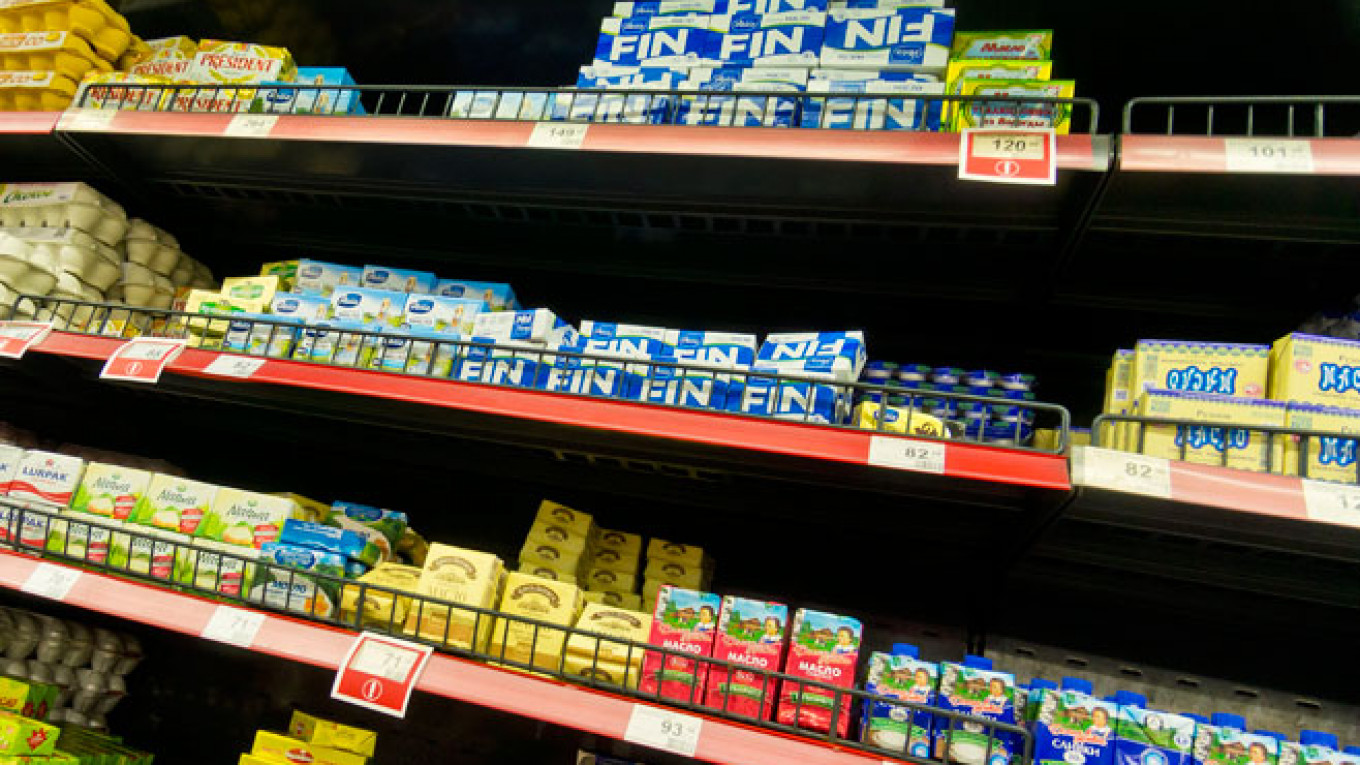Fewer Russians are concerned about inflation than they were a month ago, a new poll published Tuesday showed, even as analysts warned recession was inevitable and that a ban on many foreign food items would push up prices for consumers.
The state-run Russian Public Opinion Research Center found that between June and July, the number of Russians citing inflation as one of the most pressing problems faced by the country dropped by 10 percent, from 59 to 49 percent.
The poll was conducted in late July, before Russia banned an extensive list of Western food products, a move that analysts have said will drive up prices in stores. Respondents were asked to select up to seven answers from a list of issues. Inflation remained the problem cited by the most Russians, followed by the state of housing services and utilities, cited by 46 percent of respondents, and corruption and bureaucracy at 42 percent).
During the past year, Russians' anxiety about the inflation rate reached its peak in March, when 62 percent of the population identified rising prices as one of the country's biggest problems. At the time, inflation stood at 6.2 percent.
Agriculture Minister Nikolai Fyodorov said last week that the import ban announced in response to Western sanctions applied to Russia over the Ukraine conflict would cause a short-term spike in inflation, which currently stands at 7.5 percent.
"We do not see an adverse impact on inflation from the decisions in the long and medium term," Interfax quoted Fyodorov as saying. "Of course, some short-term psychological, emotional, seasonal increases [in inflation] could occur in the country, as they usually do."
The Agriculture Ministry also said it might negotiate a price control agreement with domestic food producers to curtail such increases.
The poll was based on a survey of a representative sample of 1,600 people from 42 Russian regions. Although similar polls have yet to be conducted in the aftermath of the import ban, a survey conducted on the eve of its announcement by the Levada Center, an independent research organization, found that 76 percent of the population thought banning certain foreign food imports would "undoubtedly" or "most likely" be the right decision to make. Informal polls conducted in stores since the ban was announced suggest that support for the measure has changed little.
A Message from The Moscow Times:
Dear readers,
We are facing unprecedented challenges. Russia's Prosecutor General's Office has designated The Moscow Times as an "undesirable" organization, criminalizing our work and putting our staff at risk of prosecution. This follows our earlier unjust labeling as a "foreign agent."
These actions are direct attempts to silence independent journalism in Russia. The authorities claim our work "discredits the decisions of the Russian leadership." We see things differently: we strive to provide accurate, unbiased reporting on Russia.
We, the journalists of The Moscow Times, refuse to be silenced. But to continue our work, we need your help.
Your support, no matter how small, makes a world of difference. If you can, please support us monthly starting from just $2. It's quick to set up, and every contribution makes a significant impact.
By supporting The Moscow Times, you're defending open, independent journalism in the face of repression. Thank you for standing with us.
Remind me later.






